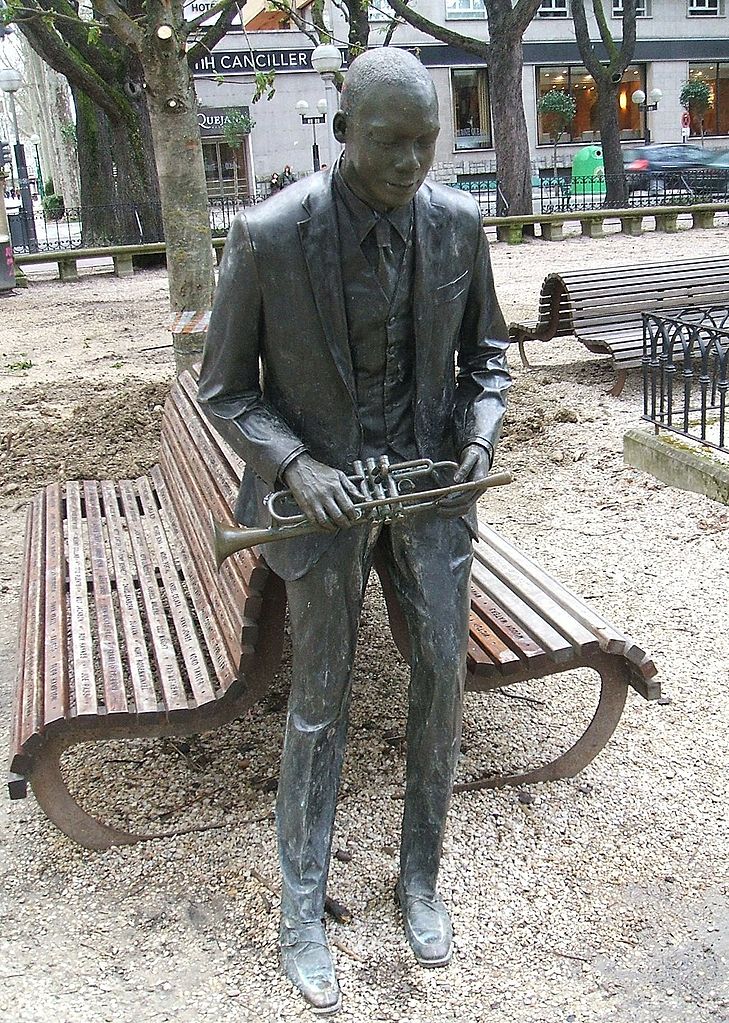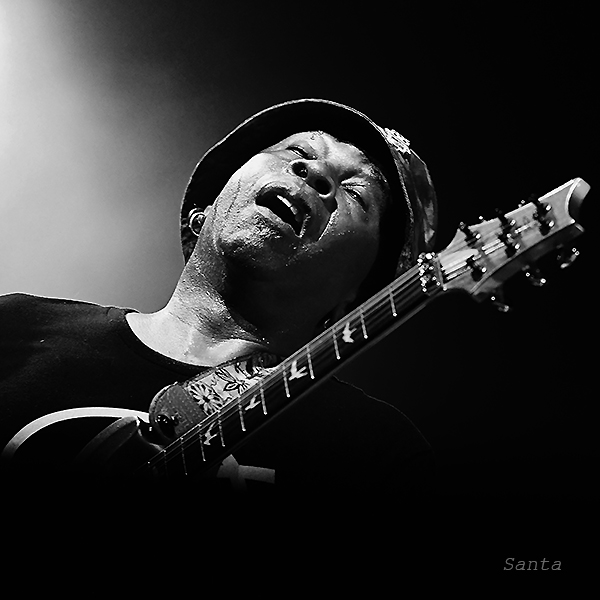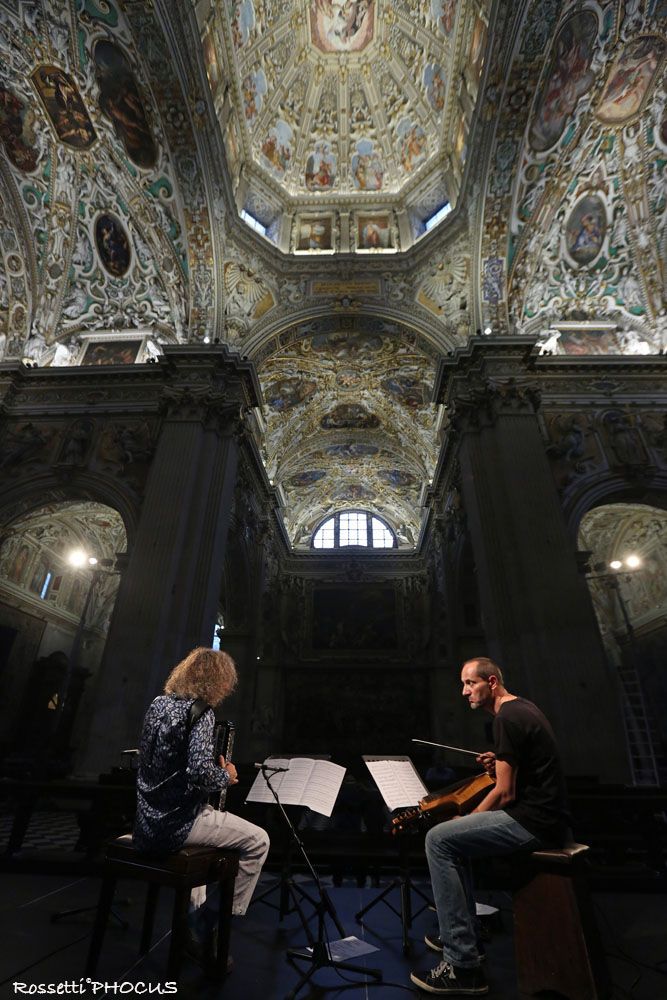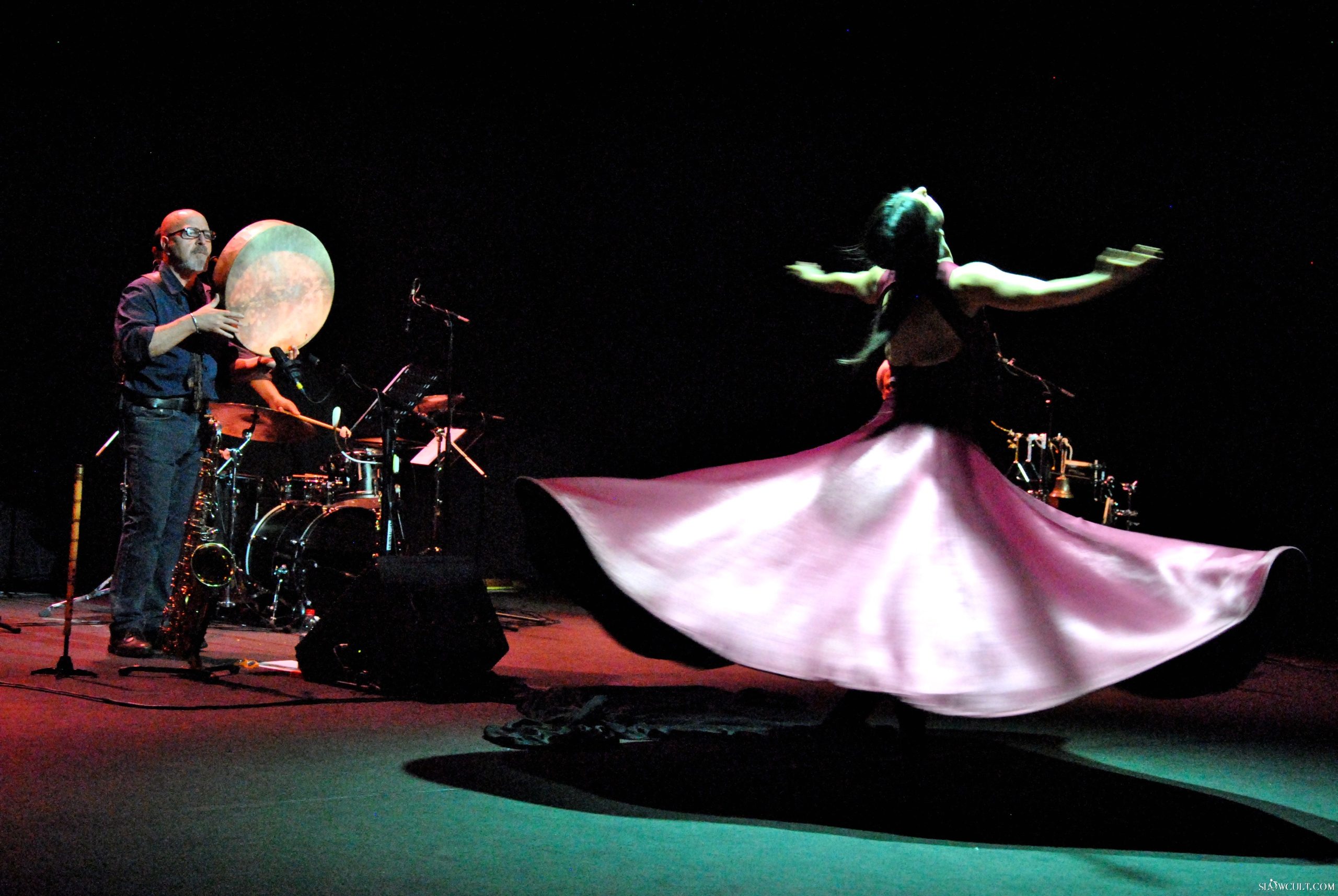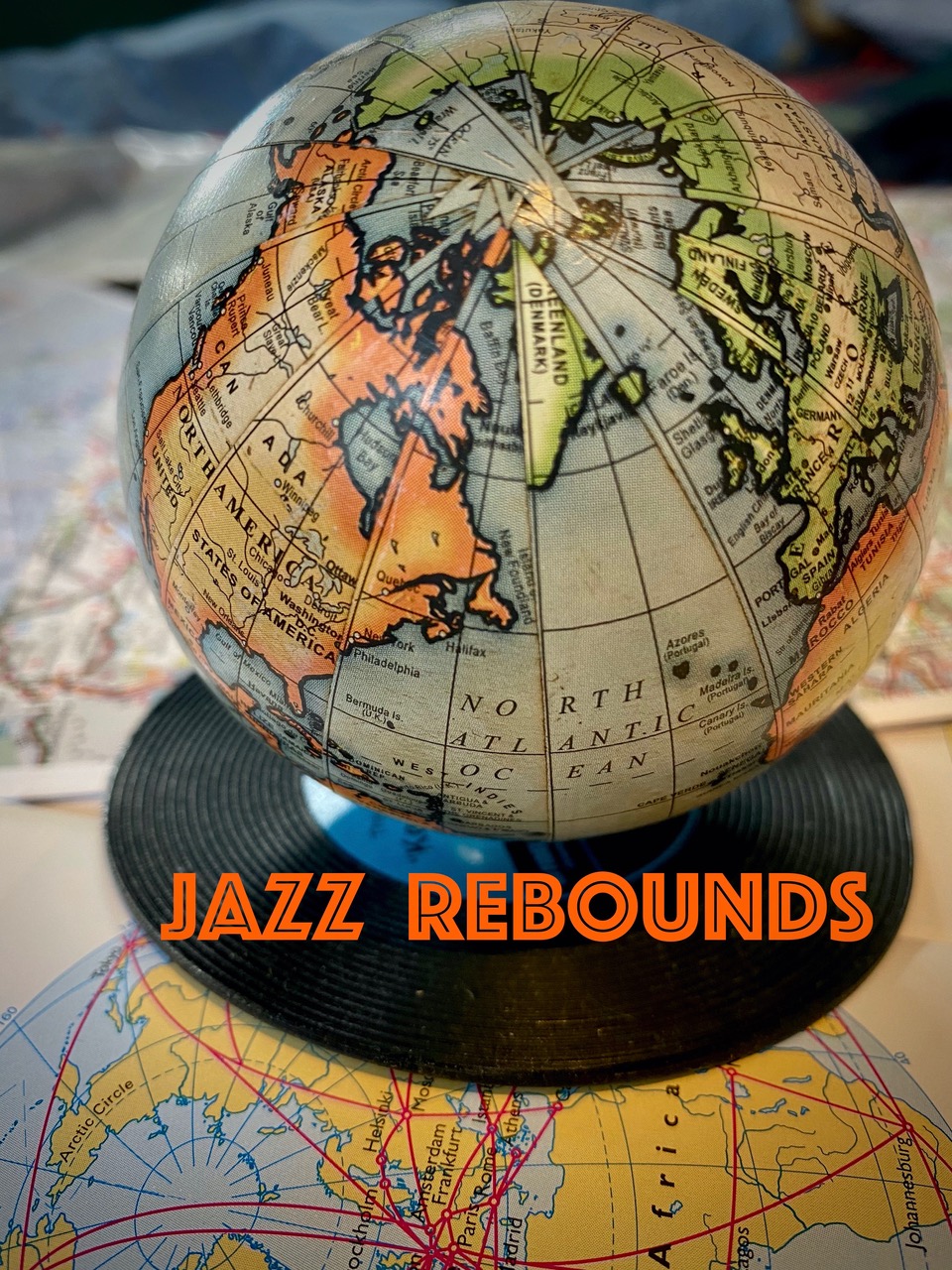The Dutch jazz scene nowadays is hugely varied and highly professional. We, too, have had to take Corona mitigation measures to sustain it, such as organizing three short concerts for three small audiences instead of one longer performance in front of a packed house. Or moving a concert from
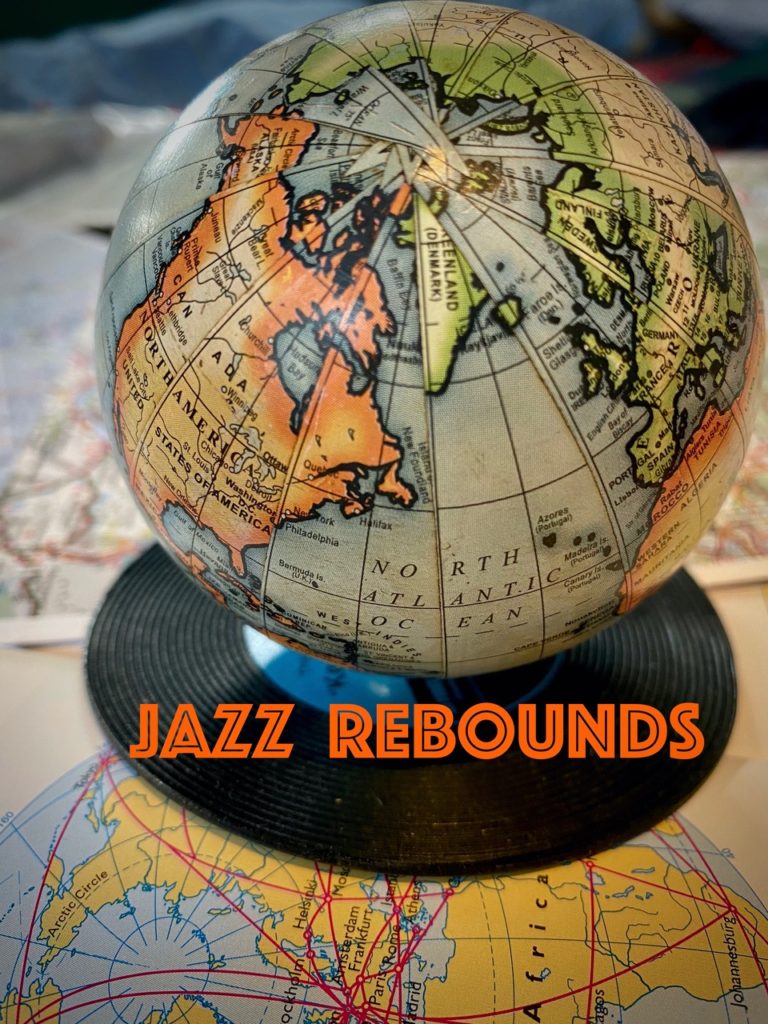
a small theater to a larger one. Or simply performing online.
My hometown of Amersfoort will host the 42nd Rabobank Jazz Festival November 20 to 22, 2020, from two venues featuring multiple performances each night, streamed live. Luckily Rabobank, the festival sponsor, will support this format as it did the previous fests. Past editions have been four days, with as many as 350 artists from 20 countries. They performed as many as 80 concerts in 20 to 40 locations, including open air stages in the city’s historic squares, for cumulative audiences of some 80,000.
In the past the Amersfoort festival has been held in May; last spring the 2020 events were rescheduled to fall, in response to disruptions of the pandemic. In Holland, most scheduled jazz festivals did take place this year, but since early November all clubs, bars and concert halls have had to close down. Until Christmas, there will be no music played in front of a live audience, not counting people watching a live stream.

This year’s Rabobank Amersfoort Jazz Online program, curated by festival director Alexander Beets, includes 19 “Dutch World Jazz” acts featuring ‘Living Legends’ and “Next Generation” talents, as well as Amsterdam-based, South Korean-born Sun-Mi Hong as “National Artist in Residence.” All events, on three streams, will originate from Theatre De Lieve Vrouw and De Observant in Amersfoort and can be viewed for free at https://www.amersfoortjazz.nl/ (share the link!) by clicking on “Amersfoort Jazz online.”
Guests will also participate in conversations on a fourth Amersfoort Jazz Cafe stream.
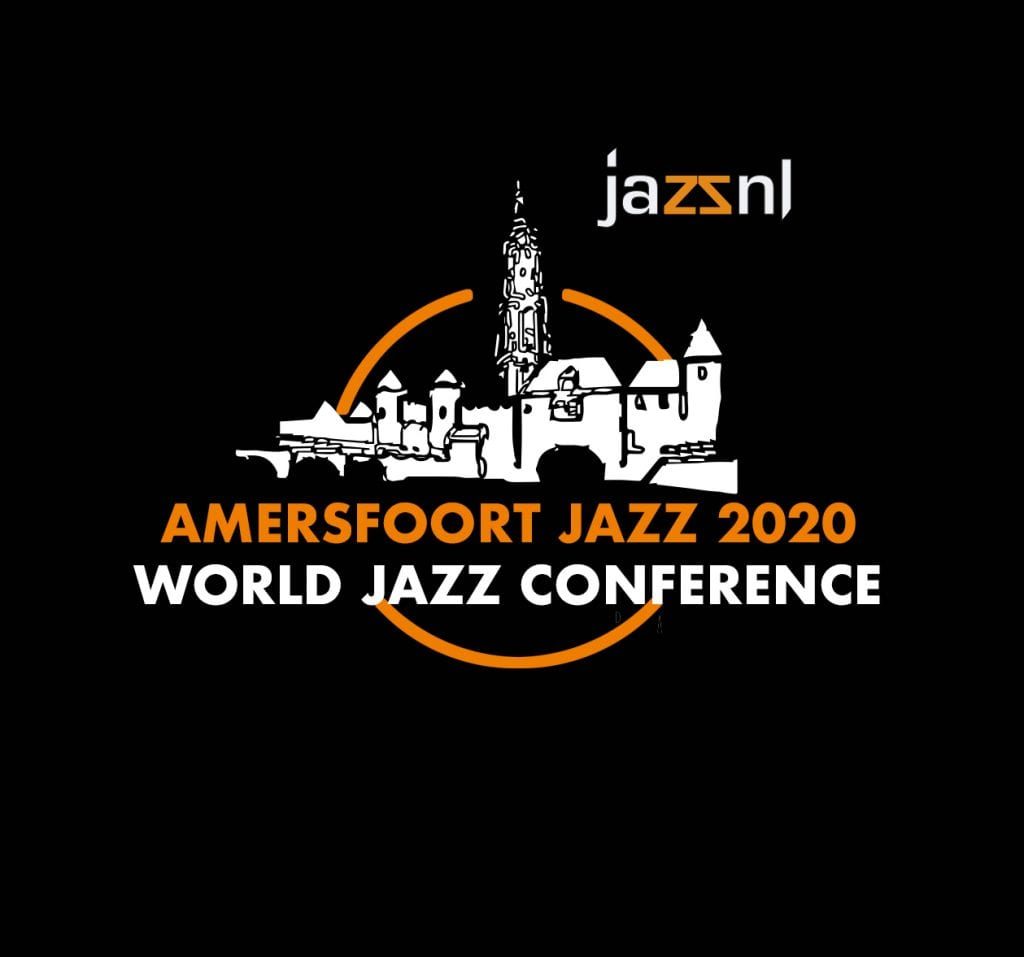
And the festival holds a “World Jazz Conference” connecting some 100 pre-registered music industry professionals via a television studio in Johannesburg, South Africa. Its topic: the IKS Cultural Consulting (South Africa) Impact Survey Report about the consequences of the pandemic for the global jazz ecosystem.
At the online festival I plan to hear singer Izaline Calister, who hightlights her Antillean roots; Tineke Postma, who dedicated her latest album, Freya, to her Frisian background (Frisia being a coastal region to the country’s north with a language and traditions of its own), and pianist Xavi Torres, who found jazz in Spain before moving to the Netherlands.

They naturally incorporate their own heritages in their playing, reflecting what may be a defining theme of jazz here: Inspiration may come from anywhere.
For decades, local Dutch musicians followed whatever could be heard on the latest records from the USA, but since the 1960s Amsterdam musicians such as Willem Breuker and the members of the independent Dutch label Instant Composers Pool have invented their own brand of improvised music.
Musicians relocating from Suriname have used their own backgrounds in their music as well. Situated on the northeast coast of South America, Suriname was a Dutch colony for centuries, and in a wave that started even before it was declared independent in 1975, some 350,000 of its residents have emigrated to The Netherland. Among them were bassist Pablo Nahar and drummer Eddy Veldman, co-founders of the Suriname Music Ensemble. Their mix of modern jazz and Surinam folk music was labeled ‘Paramaribop’, after their nation of origin’s capital, Paramaribo.
@ the Bijlmerparktheater, Amsterdam, The Netherlands, 2011
Since the late 1970s, almost all the music conservatories in the Low Countries have cherished their own jazz departments, resulting in drastically improved rhythm sections in particular. Good horn players could be found earlier, but it took a while before bands really started swinging. Among the top accompanists in The Netherlands are pianist Rein de Graaff and drummer John Engels. Senior citizens, they now perform infrequently, but their respective trios — de Graaff’s with bassist Marius Beets and drummer Eric Ineke, Engels’ for a long time with pianist Cees Singer and bassist Jacques Schols (sadly, both deceased) — supported an encyclopedia’s worth of jazz giants on tour, in the recording studio and at the North Sea Jazz Festival.
In order to swing even harder and to improvise with even more edge, some Netherland musicians have emigrated to New York. Bassist Joris Teepe is nowadays a permanent member of Benny Golson’s band. Aforementioned saxophonist Tineke Postma, has more recently made a stir, noted in the 2019 DownBeat polls both as a soprano and alto saxophonist.
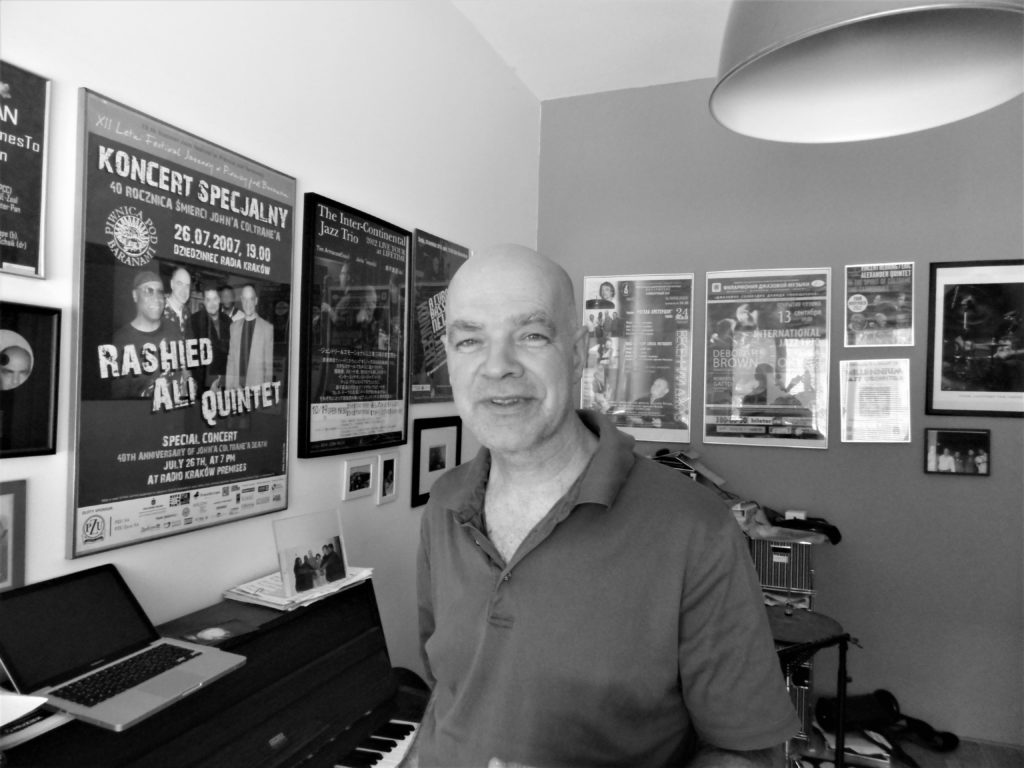
Younger musicians who remain in Europe have increasingly developed a jazz sound which is rich harmonically but shows less emphasis on ‘swing’ in the traditional sense of the word. Yet some US musicians — perhaps especially Keith Jarrett, Bill Evans and Michael Brecker — continue to assert significant influence on emerging players here. Trumpeters still adore Chet Baker (d. 1988), who had such busy touring and recording schedule in Europe, largely uncovered by the American press, that he essentially became a European himself.
Our expectation now is that the jazz scene will recover once most of the country has been vaccinated. As the vaccines won’t be available until at least spring 2021, we’ll have to wait at least until next summer. All this can still change, as reports vary and news develops. Fortunately, the landlords of Dutch clubs, bars and theaters often show some leniency to their tenants. Nobody is going to benefit from bankrupt tenants and vacant buildings.
Often, I wonder how musicians in The Netherlands pay the rent. But then — I ask myself the same thing whenever I’m in Manhattan.
A jazz writer, journalist and part-time musician since the late 70s, Jeroen de Valk works for magazines and newspapers and is the author of acclaimed biographies of Chet Baker and Ben Webster.

